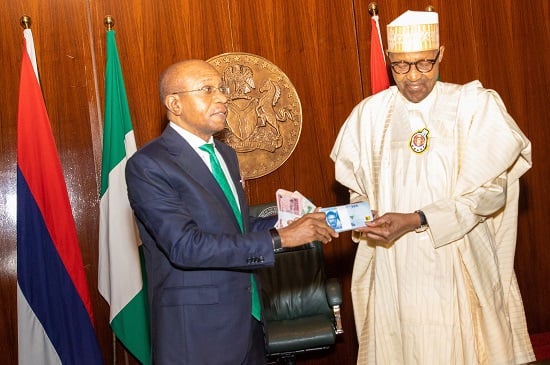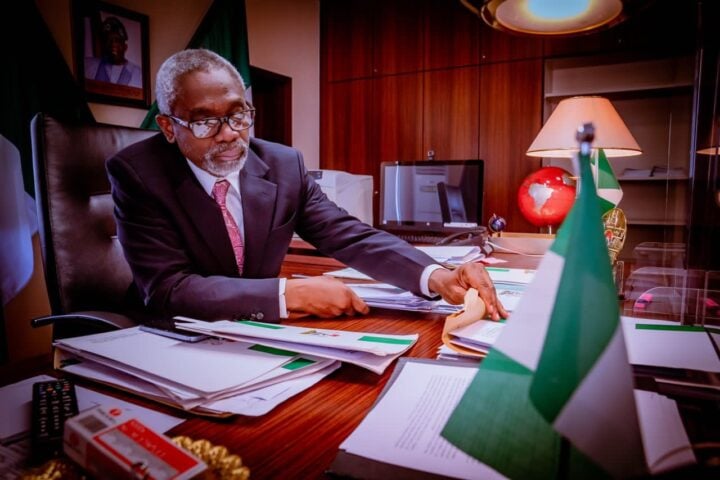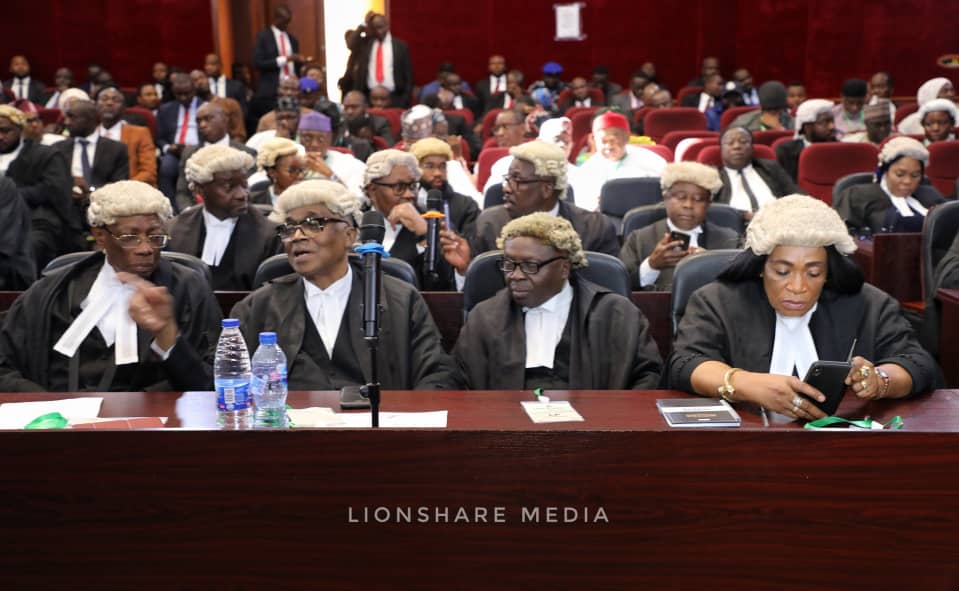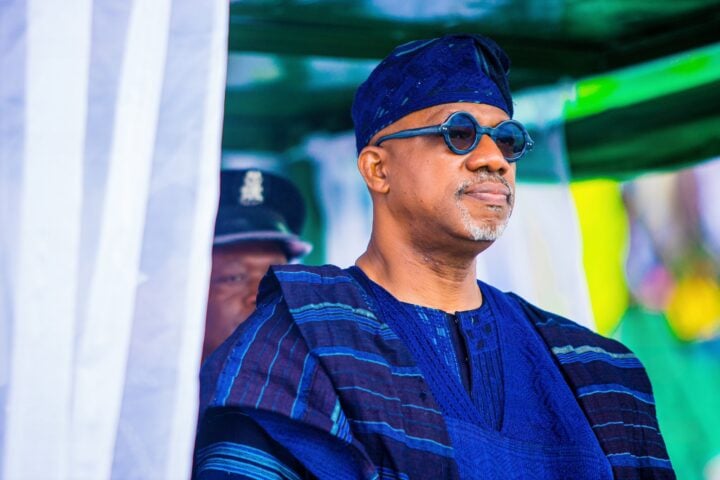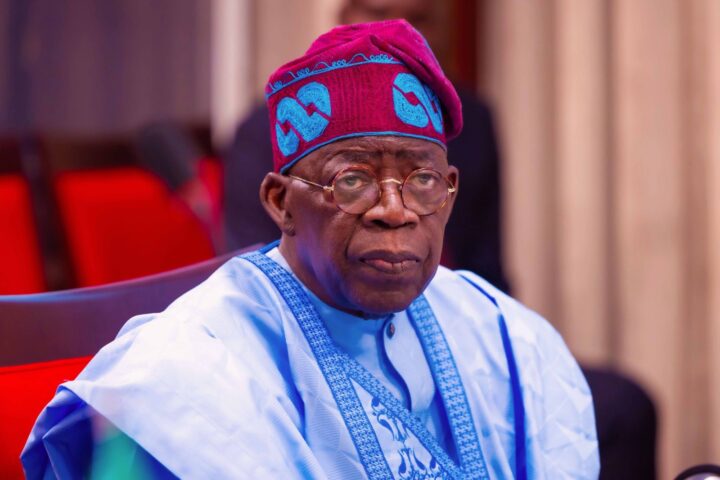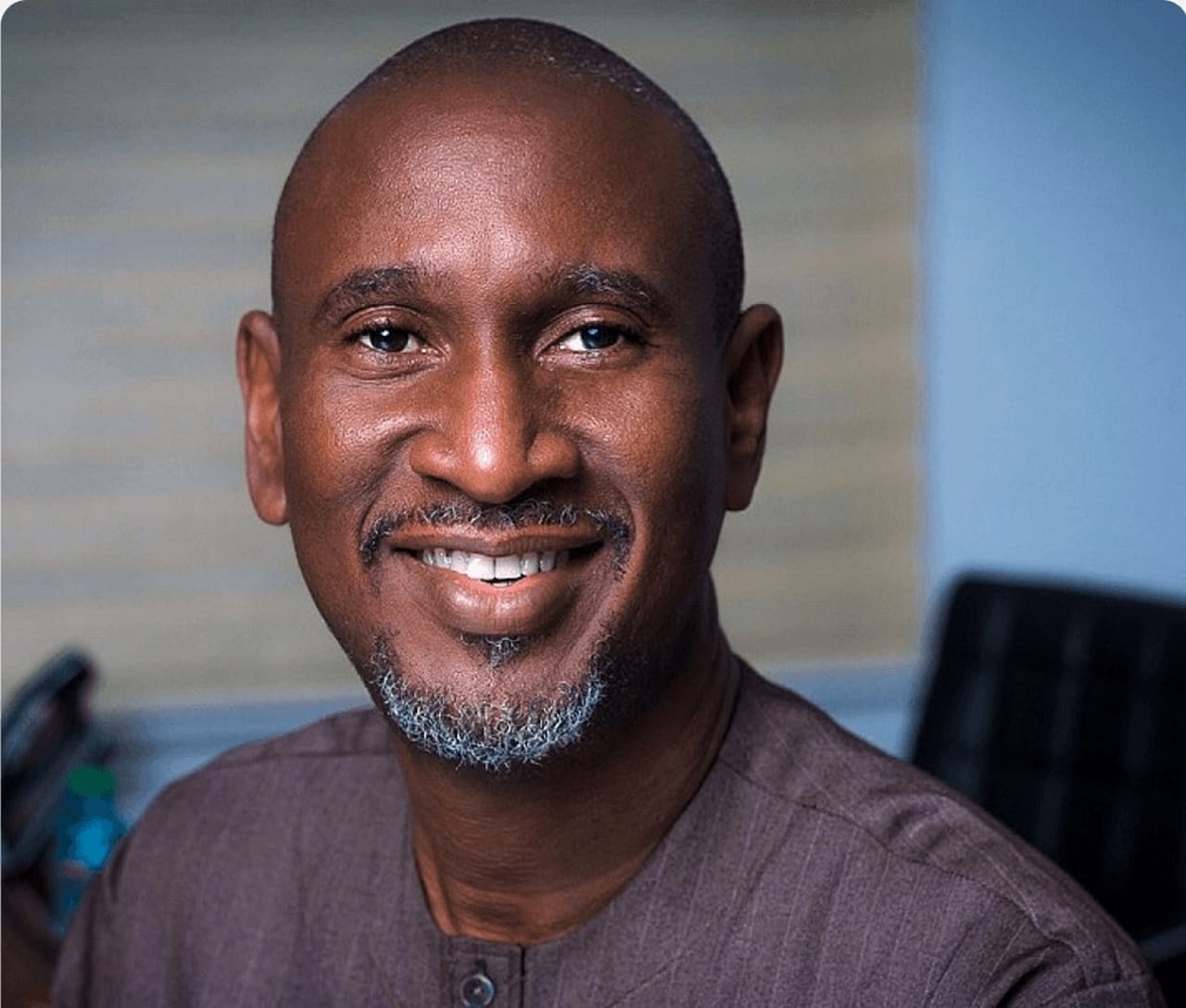PRESIDENT BUHARI UNVEILS NEW NAIRA NOTES 1A-C; L-R; CBN Governor, Mr Godwin Emefile and President Muhammadu Buhari, as President Unveil new Naira Notes and presides over FEC Meeting at the State House Abuja. PHOTO; SUNDAY AGHAEZE. NOV 23RD 2022
BY UMAR GARBA
At the weekend, former President Muhammadu Buhari who had thought he would be resting in Daura or somewhere in Niger Republic suddenly became the subject of discussion in the Nigerian media. Former Attorney General of the Federation and Minister of Justice, Mohammed Bello Adoke stirred the hornet’s nest when he called out the former President on the performance of his administration, particularly in the area of corruption and management of the economy.
This article was inspired by the news reports on the response to Adoke’s interview by Mallam Garba Shehu, the former Senior Special Assistant (SSA) on Media and Publicity where he was quoted as writing that “Buhari came on a rescue mission and effectively saved Nigeria from corrupt undertones that were planted to expose its economy to imminent collapse”. The claim by Garba Shehu that Buhari ‘rescued’ Nigeria’s economy is debatable. However, my opinion is that it is a claim that cannot stand the test of good scrutiny. And my reasons are as follows:
In the eight years of Buhari’s presidency, the inflation rate rose to 22.41 percent from 9.01 percent that the administration inherited from the Jonathan government, a development that pushed millions of Nigerians into poverty. It is believed that the inflation rate was caused by weak monetary and exchange rate policies as well as excessive government borrowing from the Central Bank of Nigeria (CBN).
Advertisement
With such high interest and inflation rates, the unemployment rate also hit the roof. Under Buhari, 33.2 percent of Nigerians have no jobs while 63 percent of the population or 133 million people are multi-dimensionally poor. This is the same administration that promised to lift millions of people out of poverty. In reality, its poor and inappropriate policy choices pushed many more people into poverty.
The Buhari government’s poor economic management style is manifested in the value of the naira in exchange with the dollar. From N157 to a dollar official rate in 2014, it moved to N439 when Buhari was about to leave office. The black market value of the dollar rose to N720 naira to a dollar when it was just N200 at the advent of the administration. Also, the Foreign Direct Investment (FDI) inflow was $26 billion when Buhari took over in 2015 fall to $ 8 billion by 2021. Of course, this was a response to the poor economic policies, harsh business environment, heightened insecurity, and inability of the President to endear himself to foreign and local investors.
Also, when the drivers of his monetary and fiscal policies continued to engage in needless squabbles, the president did not demonstrate the needed leadership nor direction to call them to order. That is why the vital statistics continued to show danger with no rescue efforts being put in place. Nobody got fired for not doing the right thing or finding appropriate solutions to the problems.
Advertisement
The fiscal deficit under Buhari was at an all-time high. While the Fiscal Responsibility Act, of 2007 stipulated not more than a 3 percent fiscal deficit rate for each year’s budget, the Buhari government fiscal deficit rate for the 2023 budget is 4.8 percent rate. This hurt borrowings and future debt service.
Also, the Buhari government seemed to have mortgaged the future of Nigerians with its huge borrowings. From about N600 billion in 2014, the borrowing through ways and means increased in the eight years of Buhari to N23.8 trillion, a development that also constituted an infraction of the Fiscal Responsibility Act because most of the borrowings were to fund recurrent expenditure.
The poor financial situation of the country under Buhari was a partial fall-out of the poor revenue accruing to the government within the period. The revenue to GDP under the immediate past government fell to between 2.8 percent to 3.4 percent compared to 4.4 percent which was the lowest recorded in the period preceding the coming of the Buhari government. Still, the high debt service costs and subsidy payments made matters worse for the administration.
The government of Buhari did not know how to tackle the oil theft menace in the Niger Delta area and therefore watched helplessly and cluelessly as low crude production prevented Nigeria from benefitting from the increase a global increase in the price of crude oil.
Advertisement
Also, the Buhari government continued to fritter money away and accumulate more debt by sustaining an inefficient petroleum subsidy regime. In its first three years, the administration spent N1.2 trillion on fuel subsidies. In the four years that followed, the figure jumped to N5.9 trillion. In the last six months before the exit of the administration, it budgeted N3.4 trillion on subsidies. What a waste of unavailable money!
Still, the Buhari government made political decisions that further created socio-political and economic instability by setting one section of the country against the other. Through skewed appointments and incendiary statements, the government destroyed the fragile unity among the parts of the country. Such actions like making all or majority of the heads of security agencies come from just one section of the country and referring to a part of the country as a ‘dot in a circle’, the suspicion and hostility among different sections of the country got to the zenith.
This affected trade and commerce, travel across different parts of the country, and relationships among people of various ethnic groups. Tension rose. Groups exhibited distrust and many people returned to their ethnic conclaves.
So, with the report above, how can Buhari be said to have strengthened the economy of Nigeria? In what way will the Nigerian economy be said to have been rescued in the last eight years with these ugly developments and unimpressive statistics? I think it is now that the country deserves to be saved, salvaged, and rescued from the ills of the last eight years. Mallam Garba Shehu may want to fault my points above. The debate continues.
Advertisement
Garba writes from Sokoto.
Advertisement
Views expressed by contributors are strictly personal and not of TheCable.
Add a comment
